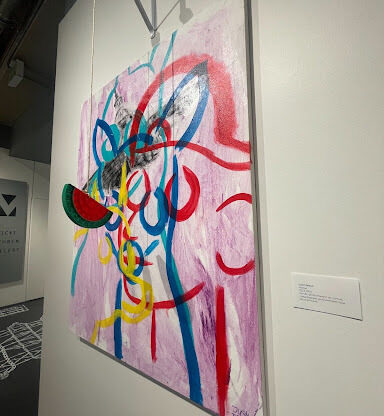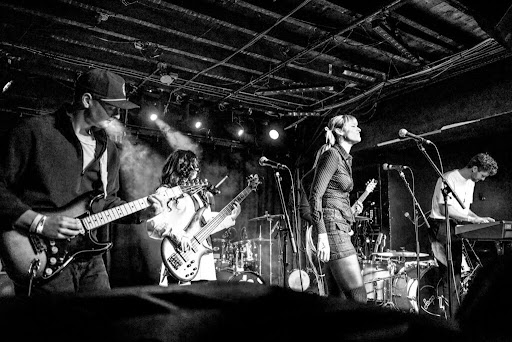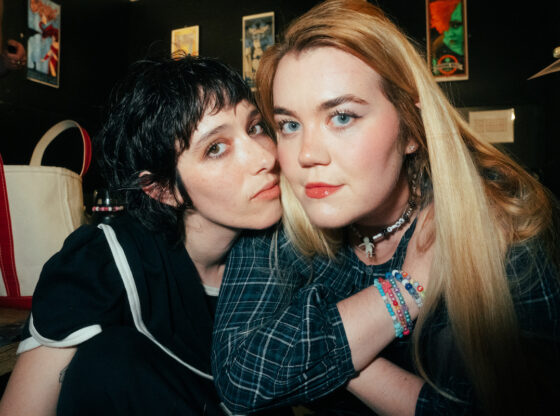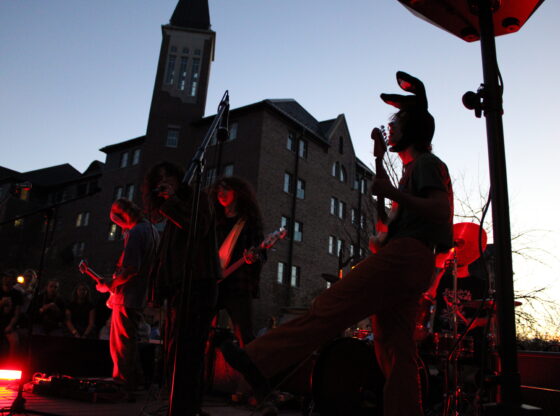As long as humans have been making art, we have been doing it while under the influence of psychotropic substances. Since the first ancient human covered his hand in the pigments of flowers and pressed it against a stone wall, art and drugs have been deeply and intrinsically intertwined. Cannabis, the most used illicit recreational drug in the world, has for its entire history been linked to increased creativity and appreciation of art. For many, the substance is a harbinger of increased creativity, and many creative individuals are distinctly linked to the drug.
While cannabis might be—within our cultural narrative—connected with increased creativity, the actual facts might be a little more obscure. The first major issue in actually determining whether cannabis increases creativity is the nature of creativity itself being unmeasurable. There is really no universal definition of creativity, so researchers usually test two different processes of thinking, divergent (a thought process wherein many possible solutions are brought forth to solve a problem, i.e. brainstorming), and convergent (a process that involves judging a specific number of possible solutions to arrive at one encompassing correct answer, i.e. multiple choice test), as a measure of creativity. The second issue is that researching cannabis is incredibly difficult, and for much of the past, feasibly impossible. Due to the illegal nature of the substance, researchers have struggled with being able accurately conduct studies, as comparison and peer reviews can be close to impossible.
In 2015, researchers at Leiden University in the Netherlands tested participants in both divergent and convergent thinking processes, giving some participants either a low (5.5mg), or high (22mg) dose of tetrahydrocannabinol (THC), and others a placebo. The results of the study were that divergent thinking, a major measure of creativity, increased very slightly with a low dose of THC, but under a high dose, dropped considerably. In blunt terms, high potency cannabis actually impairs divergent thinking.
If you were to ask a random stoner, or past famous ones such as George Carlin, Steve Jobs, Carl Sagan, Alexandre Dumas, Hunter S. Thompson, Jack Kerouac, Bob Dylan and countless others, you would find that many noted an increase of creativity when imbibing in the substance. Sagan, writing anonymously in 1969, noted that “I find that most of the insights I achieve when high are into social issues, an area of creative scholarship very different from the one I am generally known for.”
But if cannabis has such a strong reputation for creative thoughts, for helping people move beyond their neural bounds, why doesn’t science seem to back it up?
The answer might lie less in the substance itself, but in the mind of the individual taking it. Individuals, like Sagan or Dylan, are already creative persons, what they might find as marked increases in creativity due to cannabis could very well just be them becoming more aware of their own personality.
Another study, conducted by University College in London looked at the difference in divergent thinking between two groups, one defined as “low,” and one as “high,” on a scale of creative traits. Unlike the Dutch study though, these participants used their own marijuana, on their own time, in their own home. They performed cognitive thinking assessments both sober and high. The results from this study shed a little more light on the issue, as it found that those with marked “high” creativity experienced little increase in divergent thinking under cannabis. However, those who were labeled “low” on the creative scale, had noted increases in divergent thinking while using cannabis, making them “as creative” as the sober “high-creative” individuals.
Basically, if you’re already a creative individual, cannabis use might not really offer you any noticeable increase in creativity, but if you’re not creative, or maybe experiencing a complete lack of creativity in the moment (writer’s block for example), cannabis might help.
A glass or two of wine can lead one to making new connections in their work, losing inhibitions and making art they wouldn’t have originally, but an entire bottle of wine might lead one less to new creative ideas and more likely, to complete garbage. The same can be said with cannabis, moderation is key. High doses, and sustained use can actually inhibit creativity, and sustained use might cause already creative individuals to become more complacent with their work. Lower doses of cannabis might offer creative benefits, as seen in both aforementioned studies (the London study used considerably lower THC cannabis than the Dutch one).
The connection between cannabis and creativity is going nowhere, especially with a new industry that is devoted to connecting strains with specific benefits (such as creativity). Hopefully, with legalizations spreading, further studies will be conducted that might bring greater scientific light to the relationship between our brains and one of our oldest indulgences.











